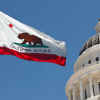AB 1997 Presents Significant Changes to California’s Teachers’ Retirement Law

Number 49
On September 30, 2024, Governor Gavin Newsom signed Assembly Bill (AB) 1997, which makes significant changes to the current definitions, rules, and protocols applicable to the California State Teachers’ Retirement System (CalSTRS). The bill aims to simplify certain definitions within the Teachers’ Retirement Law, applicable to reporting requirements for CalSTRS employers statewide, with the goal of providing for more consistent reporting, the reduction of reporting errors, and resulting penalties, moving forward. However, it is unclear when these changes will become effective, as AB 1997 grants CalSTRS the discretion to make this determination, so long as it is no later than July 1, 2027.
The key changes to the Teachers’ Retirement Law include:
AB 1997 will redefine “annualized pay rate” to mean the salary a person may earn during a school term in a position subject to membership if creditable service was performed for that position on a full-time basis, pursuant to a publicly available pay schedule. If an annualized pay rate does not exist, it shall be considered “supplemental pay.”
Accordingly, this new definition will require every certificated position within a school district that is reported to CalSTRS to have a publicly available salary schedule, including superintendents and other positions which have historically had salary established by an employment contract. However, CalSTRS may clarify by regulation or through subsequent legislation that salary can still be established by a written employment contract. This issue will need to wait for future clarification.
Currently, there are two definitions of “creditable compensation”: one applicable to “classic” members (generally, CalSTRS membership before January 1, 2013), and another for “new” members under the Public Employees’ Pension Reform Act (PEPRA) (generally, CalSTRS membership on or after January 1, 2013). AB 1997 repeals the definition of creditable compensation for “classic” members and provides a new, single definition of creditable compensation applicable to all CalSTRS members, with new terminology. Under the new statute, creditable compensation now includes “base pay,” which may consist of either “salary” or “special pay.” This statute also includes a new category for “supplemental pay,” that is reportable to the Defined Benefit Supplement (DBS) program.
AB 1997 further repeals the definition of “creditable service” and includes a new section which will define a “position subject to membership.” This section will require every county office of education and school district employer (excluding charter schools) to either: 1) adopt a resolution at a public meeting designating which positions shall be subject to CalSTRS membership; or 2) collectively bargain such positions into the recognition clause of their respective collective bargaining agreements within the certificated bargaining units.
For charter schools, in order for a position to be subject to CalSTRS membership, it must be eligible for apportionment and must require a California Teaching Credential or permit. As for community colleges, positions subject to membership shall be those positions that meet the Education Code definitions of “faculty,” “academic,” and “educational administrator,” and meet the minimum qualifications adopted by the Board of Governors of the California Community Colleges.
Under the current law, the contribution rates for the defined benefit program are higher than the contribution rates under the DBS program. If a member is determined to have worked service in excess of one year, then CalSTRS redirects the employer and employee contributions on the excess service to the DBS and refunds the excess employer and employee contributions. Under the new legislation, only the excess employer contributions will be refunded. Excess employee contributions will remain in the member’s DBS account and can be drawn at the time the member retires.
Takeaways
Given the breadth and scope of these changes, it is highly likely CalSTRS will be required to amend existing creditable compensation regulations. Additional clean up legislation may also be necessary before all of the changes under AB 1997 can be implemented.
Again, it is unclear when these changes will become effective, as AB 1997 grants CalSTRS the discretion to make this determination, so long as it is no later than July 1, 2027. This expanded timeline is likely meant to provide CalSTRS with ample time to consider additional amendments to the Teachers’ Retirement Law and adopt any new or amended regulations required based on the myriad changes set forth in this bill, as well as offer CalSTRS time to ensure its systems can support such changes.
For more information on these changes to the Teachers’ Retirement Law and how they may affect your employees, please contact the authors of this Client News Brief or any attorney at one of our eight offices located statewide. You can also subscribe to our podcasts, follow us on Facebook, Twitter and LinkedIn or download our mobile app.
As the information contained herein is necessarily general, its application to a particular set of facts and circumstances may vary. For this reason, this News Brief does not constitute legal advice. We recommend that you consult with your counsel prior to acting on the information contained herein.






